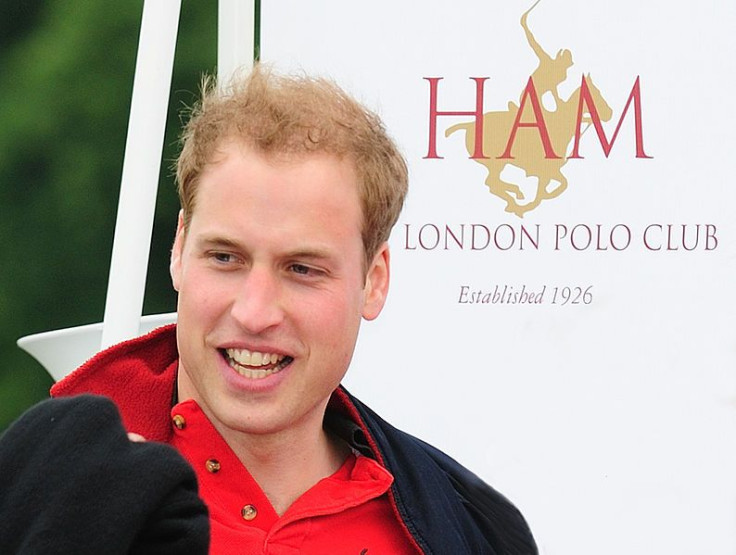Prince William Has Indian Ancestors, DNA Proof 'Unassailable'

A British genetics expert revealed today that Prince William's "great-great-great-great-great grandmother," Eliza Kewark, may have been "half-Indian," The Times reports. Until now, this woman who was married to Theodore Forbes (1788-1820), a Scottish merchant who worked in Surat, north of what is now Mumbai, was thought to be of Armenian descent.
Dr. Jim Wilson, a geneticist at the University of Edinburgh and chief scientist at BritainsDNA, the firm that carried out the genetic tests, said that Kewark's descendants had "an incredibly rare type of mitochondrial DNA (mtDNA)," inherited only from a mother. It had been recorded in only 14 other people, 13 Indian and one Nepalese. "Dr. Wilson..., said that results of the mtDNA combined with the findings of South Asian DNA in the rest of the genome meant that the evidence of the Duke's Indian heritage was unassailable," The Times reported.
Kewark's mitochondrial DNA was passed down through the couple's daughter, Katharine Scott Forbes, and her female descendants, one of whom, Frances Roche (1936-2004), married Earl Spencer and bore a daughter, Lady Diana Spencer, the prince's mother.
Attention is now focused on the city of Surat in the state of Gujarat, where a hunt has begun for possible cousins and relatives of Britain's prince. Many have already begun to speculate: will he welcome the newly found relatives as his own? Perhaps a more interesting question is whether this new genetic knowledge will change his self-perception. It is for this latter reason — fear of what may be found — that many people resist genetic testing.
History of Genetic Testing
In 1952, Francis Crick and James Watson discovered the molecular structure of DNA and confirmed that DNA held the keys to our genetic code. Since then, along with the race to map the human genome, which was declared complete in 2003, there has been much debate about how genetics research will be used and when applied. With each successful unraveling of individual genetic makeup, fears of stigmatization or ostracism of those with "undesirable" traits seem to increase; in fact, the Genetic Information Nondiscrimination Act of 2008 addresses exactly these issues.
At the same time, very specific information culled from our genes is becoming commonly used. For years now, genetic tests have been available to check for BRCA1 and BRCA2 mutations, linked to increased risk of breast and ovarian cancer, and many women have availed themselves of these tests. Increasingly, genetic testing is used in oncology to determine the risk of cancer remission. Increasingly, genetics are used to personalize medicine and scientists speak of a future where our genes will be manipulated to restore damaged health or enhance our function. Yet, it is the simple lure of understanding their ancestry that puts the kibosh on many peoples' fears of misuse.
Popularity of Genealogy
There's even an ancestry app for the iPhone. Who Do You think You Are? and its upscale cousin Finding Your Roots with Henry Louis Gates, Jr. are reality TV at its finest, further celebrating the famous by tracing their genealogy. And then, of course, there are the countless websites that help you trace ancestors and distant relatives. Clearly, genealogy is not only important to people but also profitable business.
What is unclear is the meaning behind this preoccupation with origins and personal discovery. Are people hoping to find some link to someone important or famous as a way to justify expansion of their hopes and dreams? Or is there a wish to use genetic knowledge to unpack identity during a time when ethnic and racial categories are often used in social policy?
Feminists taught us that "the personal is political." Soon, gender, race, and ethnicity will no longer suffice as identity markers — only biology and genetics will do. The personal just got much more precise.



























